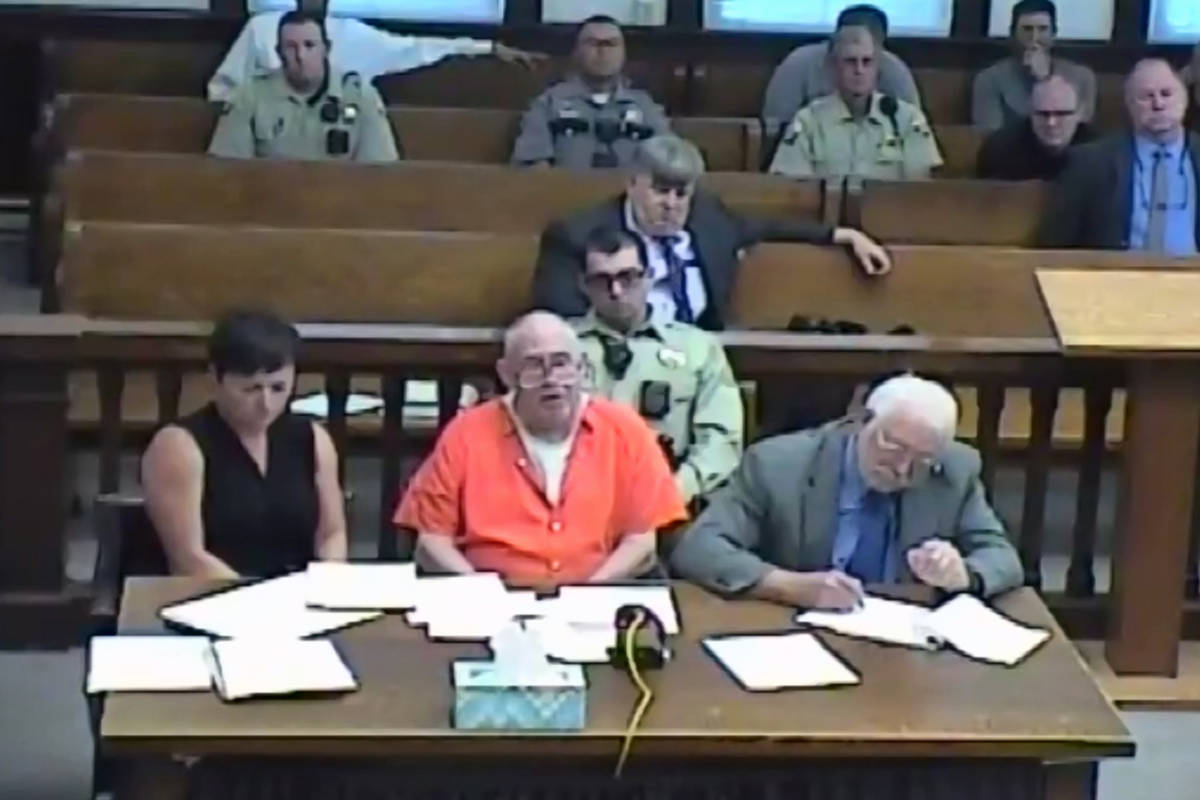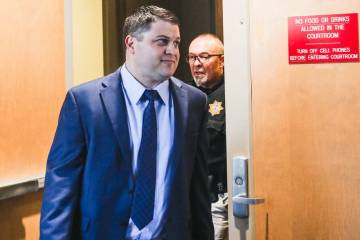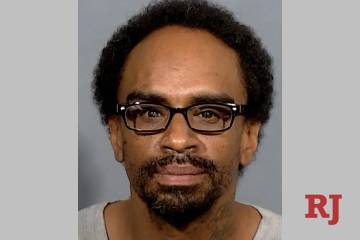‘I had shot him.’ Man pleads guilty in Highway Patrol sergeant’s killing
A 67-year-old man pleaded “guilty but mentally ill” Monday morning in an ambush-style shooting early last year that left a Nevada Highway Patrol sergeant dead.
In exchange, White Pine County prosecutors pulled capital punishment off the table.
“The officer had come up to the side of the road, and I had shot him,” defendant John Dabritz told White Pine County District Judge Steve Dobrescu. “He was killed.”
Shackled and dressed in orange jail garb, Dabritz, who has been in custody at the Northern Nevada Correctional Center, was present alongside his attorneys for Monday’s hearing in Ely, which was livestreamed.
State law allows a judge in such cases, in which a defendant pleads “guilty but mentally ill” to first-degree murder, to impose “a punishment less than death.”
As part of the plea agreement, prosecutors are expected to ask the judge in late September to sentence Dabritz to life without the possibility of parole.
By withdrawing his original plea of not guilty by reason of insanity, Dabritz, who is diagnosed with Type 1 bipolar disorder, also eliminated the need for a trial, which had been scheduled to begin in September.
Dabritz is charged with first-degree murder, third-degree arson, grand larceny of a motor vehicle and grand larceny of a firearm in connection with the killing of Sgt. Ben Jenkins on March 27, 2020, just north of Ely. Authorities have said that after the shooting, Dabritz stripped Jenkins of his uniform and weapon before fleeing in the sergeant’s patrol vehicle, prompting an hourslong manhunt.
In a statement to the Las Vegas Review-Journal, White Pine County District Attorney James Beecher said the offer was extended “to provide the family with swift and final closure, without protracted appeals or requiring them to relive the horrific incident through trial.”
Beecher added, “The decision to come to this resolution was made in close consultation with the family of Sergeant Benjamin Jenkins and multiple law enforcement agencies.”
In the days after the killing, the Review-Journal learned that Dabritz had long suffered from bipolar disorder and alcoholism, and had spent the weeks leading up to the shooting on a paranoid quest to warn people of his theory that COVID-19 was spreading through the water and sewer systems.
His efforts landed him at William Bee Ririe Hospital in Ely on a legal mental health hold before he was flown around March 14 to Desert Parkway Behavioral Healthcare Hospital in Las Vegas. He was released on March 20, court records show, a week before Jenkins was killed.
“The thing is, they let him out, and they really shouldn’t have,” the defendant’s younger brother, Karl, previously told the Review-Journal. “He was totally out of his mind, if you know what I mean.”
Desert Parkway has not responded to requests for comment.
A psychiatrist, who, under court order, had treated Dabritz following his arrest echoed many of the Review-Journal’s findings during a competency hearing in October.
At the hearing, Dr. Steven Zuchowski testified that Dabritz has a “very classic presentation” of Type 1 bipolar disorder. Symptoms that led to the diagnosis, according to Zuchowski, included paranoia, extreme irritability and anger “that was very difficult for him to control and would have been impossible for someone to fake in any kind of sustained way.”
Authorities have said the shooting unfolded just before dawn on a remote stretch of U.S. Highway 93 shortly after Jenkins pulled over to check on a stranded driver.
During Jenkins’ interactions with the driver, Beecher has said, “there was no expressed provocation” prior to the first gunshot.
“Officer shot, officer shot!” Jenkins yelled into his radio, according to a video captured by his body camera. The footage of the officer’s final moments was shown publicly for the first time in November during a preliminary hearing in the case.
Jenkins collapsed to the snow-covered ground.
“I’ve been shot in the right shoulder,” Jenkins said, breathing heavily, as he tried to crawl toward his patrol vehicle. “I’ve —”
Another round went off, according to the video, and Jenkins stopped moving. It would be his final dispatch.
His killing marked the Highway Patrol’s first death in the line of duty in more than a decade. In his honor, the agency retired the sergeant’s patrol number, H-4196, during a memorial service last summer in Elko, the community he served for more than 21 years.
Contact Rio Lacanlale at rlacanlale@reviewjournal.com or 702-383-0381. Follow @riolacanlale on Twitter.




























